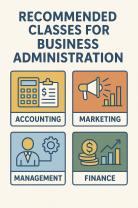What is Econ in college?
In college, "Econ" typically refers to the academic field of economics. "Econ" is often used as a shorthand or informal term to describe courses, programs, or departments related to the study of economics. Here's an overview of what "Econ" generally entails in the context of college:
1. Economics as an Academic Discipline:
- Economics is a social science that studies the production, distribution, and consumption of goods and services. It involves analyzing how individuals, businesses, and governments make choices to allocate scarce resources to meet their needs and wants.
2. Introductory Courses:
- Many colleges offer introductory economics courses, often titled "Principles of Microeconomics" and "Principles of Macroeconomics." These courses provide a foundational understanding of basic economic concepts, principles, and theories.
3. Core Areas of Study:
- Students studying "Econ" typically explore core areas such as microeconomics (individual behavior and markets), macroeconomics (aggregate economic trends), econometrics (statistical methods in economics), and various specialized fields like labor economics, international economics, and environmental economics.
4. Mathematics and Statistics:
- Economics often involves the use of mathematical and statistical tools for analysis. Therefore, "Econ" students may take courses in mathematics for economists, statistics, and econometrics to build quantitative skills.
5. Degree Programs:
- Colleges and universities offer various degree programs in economics, such as Bachelor of Arts (B.A.) or Bachelor of Science (B.S.) in Economics. Students may pursue advanced degrees, including Master's and Ph.D. programs in economics for more specialized research and analysis.
6. Research Opportunities:
- In advanced studies, students may engage in research projects, senior theses, or capstone projects to apply their knowledge and skills to real-world economic questions.
7. Career Paths:
- Graduates with an "Econ" degree can pursue a wide range of careers in fields such as finance, consulting, government, academia, and international organizations. The analytical and problem-solving skills developed in economics programs are highly transferable.
8. Internship and Networking:
- Many "Econ" programs encourage students to seek internships and engage in networking opportunities to gain practical experience and establish connections in the professional world.
9. Continuing Education:
- Some students may choose to pursue graduate studies in economics, business, public policy, or related fields to further specialize in a particular area or enhance their career prospects.
In summary, "Econ" in college refers to the academic study of economics, covering a wide range of topics related to economic systems, behaviors, and policies. It provides students with a solid foundation in economic theory and practical skills applicable to various industries and sectors.
How is 'Econ' typically referred to in college settings?
In college settings, "Econ" can be referred to in a variety of ways, depending on the context and level of formality:
Formal:
- Economics: This is the most standard and formal way to refer to the subject. It's used in official documents, course titles, and academic discussions.
- Department of Economics: This usually refers to the academic department responsible for economics courses and research.
- Econ Major/Minor: Used to describe students pursuing a degree or specialization in economics.
Informal:
- Econ 101/201/301, etc.: Used to refer to specific introductory, intermediate, or advanced economics courses by their course numbers.
- Eco/Econo/Ecom: Shortened versions of "Economics" often used in casual conversation or writing.
- The Econs: Used to collectively refer to economics professors or the economics department.
- Taking Econ: This simply means a student is enrolled in an economics course.
Humorous:
- Supply and Demand: Sometimes used jokingly to explain human behavior or choices related to resources or scarcity.
- Econ Brain: May be used jokingly to describe someone who analyzes everything through an economic lens or overthinks decisions in an "economical" way.
Overall, the specific way "Econ" is referred to depends on the situation, formality, and personal preferences. You'll likely encounter various terms throughout your college experience, so feel free to use whichever feels most appropriate for the context.
Additionally:
- Some universities may have their own slang or nicknames for the economics department or specific courses. For example, it might be called "The Money Factory" or "The Marginal Utility Motel."
- Depending on the specific area of economics being discussed, additional abbreviations or slang terms might be used. For example, "BE" might refer to behavioral economics, and "IO" might refer to industrial organization.
I hope this clarifies how "Econ" is typically referred to in college settings! Feel free to ask if you have any further questions about specific terms or college experiences related to economics.











